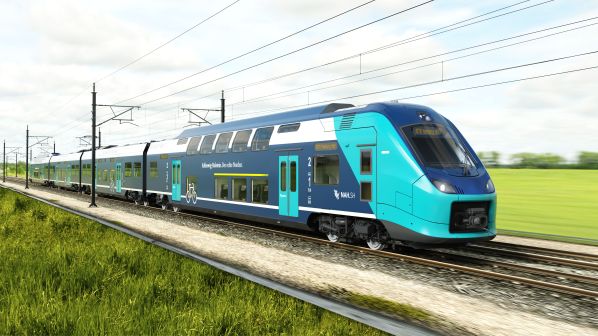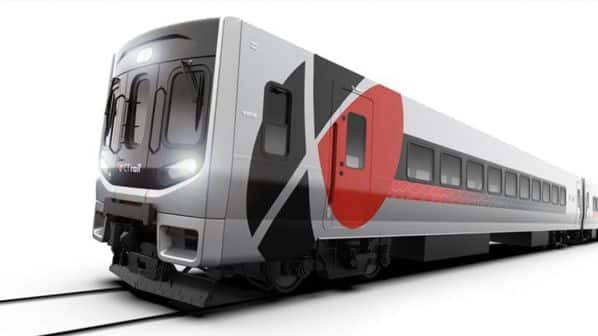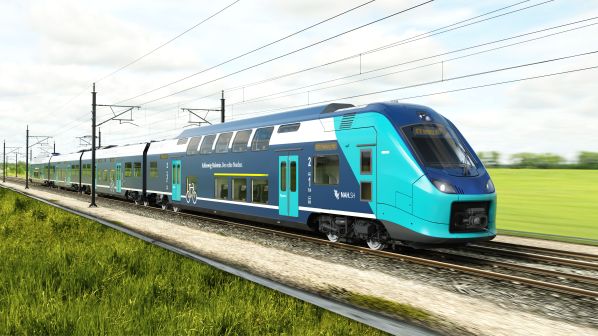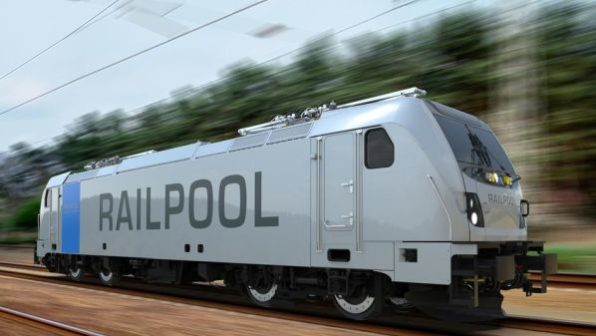ALSTOM has announced that it recorded orders worth €8.4bn in the first half of the 2023-24 financial year which ended on September 30.
This was down from €10.1bn in the first half of 2022-23, when performance was driven by Alstom’s largest-ever order in Germany, a €2.5bn contract to supply 130 Coradia Stream High-Capacity EMUs to Baden-Württemberg.
Order intake in the second quarter of 2023-24 was €4.5bn. This included 40 Coradia Stream EMUs for Schleswig-Holstein in Germany, worth €900m including maintenance over 30 years, Traxx locomotives for leasing companies Railpool and Akiem for over €400m, and 60 commuter coaches for Connecticut Department of Transportation (ConnDoT) in the United States for €300m.
With market momentum “confirmed,” Alstom expects its order intake to be stronger in the second half of the year, due to deals won but not yet booked and some orders shifting from the first to the second half of 2023-24.
Sales in the first half of 2023-24 were €8.3bn, up from €8.0bn the year before. This represents organic sales growth of 6.5% and 2.7% on a reported basis, supported by the ramp-up in sales at Alstom’s Rolling Stock business, a strong performance from Services and Signalling and the expected catch-up at Systems.
The adjusted Ebit margin stood at 5.2% in the first half of 2023-24, up from 4.9% the year before and in line with trajectory, according to Alstom. The company says that profitability was positively impacted by continuous progress on accelerating production as well as delivering against planned synergies.
However, adjusted Ebit was negatively impacted by the Aventra EMU programme in Britain, which was not completed as planned during the first half of 2023-24 and is now expected to be finished at the start of 2024-25.
Forming part of what Alstom describes as its legacy non-performing contracts, the six contracts signed by Bombardier Transportation involve the supply of 443 trains manufactured at the Derby plant to five customers.
The Aventra contracts include 90 EMUs for South Western Railway (SWR) which were expected to enter service in 2020 but have yet to do so.
Delays to the Aventra programme were responsible for around one third of year-on-year variation in Alstom’s first-half free cash flow, which was a negative figure €1.15bn in 2023-24 compared with a negative figure of €45m in 2022-23.
Alstom says that around half of this variation was due to a steep acceleration in production ramp-up at its Rolling Stock business, caused by the strong growth over the last two years of the backlog which now stands at over €87bn.
The resultant average volume increase of over 10% a year, combined with tight supply chain conditions, resulted in a significant increase in the level of inventories and contract assets built in order to avoid disrupting production and delaying deliveries, particularly in the Americas and in Europe.
Alstom expects this situation to improve during the second half of 2023-24, and to be fully reversed in the coming years.
The third factor behind the variation in free cash flow was a fall in the level of downpayments compared to the year before, due to weaker than expected orders booked in the first half of 2023-24. Alstom expects the level of downpayments in the second half to be higher than in 2022-23, thanks to its strong order intake.
For 2023-24 as whole, free cash flow is now expected to be in the range of a negative figure of €500m to €750m, compared with the “significantly positive” figure that Alstom had previously forecasted. As a result, Alstom’s share price plunged by as much as 37% on the morning of October 5.
Free cash flow in the second half 2023-24 will be significantly positive due to the reversal of some of the headwinds experienced in the first half, says Alstom, as well as initiatives implemented under its new Cash Focus Programme.
Alstom says that these issues will have no material consequences on its mid-term trajectory and has confirmed its mid-term guidance issued in May.
“Supported by a positive market momentum, Alstom is accelerating on its organic growth trajectory,” says Alstom chairman and CEO, Mr Henri Poupart-Lafarge.
“We are engaged in a steep ramp-up, in particular in the rolling stock activity. This, combined with legacy projects being finalised at the same time, is weighing on the free cash flow in this first half.
“The management team is strongly engaged on the operational excellence and cash focus plans. We remain committed to mid-term profitability and cash generation targets.”
For detailed data on rolling stock orders around the world, subscribe to IRJ Pro.




